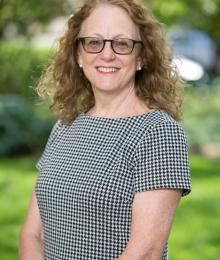S. Adolescence
Course Information
- Course Number
- L9205
- Curriculum Level
- Upperclass
- Areas of Study
- Administrative Law and Public Policy, Clinics, Externships, and Experiential Learning, Family Law, Human Rights, Racial, Economic, and Social Justice
- Type
- Clinic
Section 002 Information
Instructor
 Jane M. Spinak
Edward Ross Aranow Clinical Professor Emerita of Law
Jane M. Spinak
Edward Ross Aranow Clinical Professor Emerita of Law
Section Description
Thursday 3:10-5:00pm
2 credits (3 credits by request for additional participation; the additional credit will need to be registered as supervised research)
Enrollment: 3-6 LLM and/or Columbia University full-time graduate degree candidates.
The Columbia Law School Adolescent Representation Clinic represents youth and young adults on collateral issues relating to their aging out of foster care or other institutional settings. Most of these clients range in age from 16 to 23. The issues involved extend across a broad spectrum of need and may include housing and homelessness prevention; teen pregnancy and parenting; health and health benefits; income and support benefits; education, tuition and financial aid benefits; financial planning; civil rights including LGBTQ issues; job training and career planning; identify theft and credit; and inheritance.
One component of the clinic is a weekly seminar focusing on the unique attributes of adolescents and young adults as viewed from multiple disciplines including medicine, law, sociology, and psychology. Graduate students from other professional graduate schools in the university and LLM students can enroll in the seminar in order to explore adolescence from multiple perspectives.
Guest lecturers include advocates, family court judges, youth in foster care, and mental health professionals. Students in the Schools of Social Work, Public Health, International and Public Affairs, Journalism and Teachers College are encouraged to apply. There will be several spaces available in the seminar for students in these graduate programs and LLM students.
The seminar will meet weekly on Thursday 3:10-5pm. Credit for the seminar will be based on class participation and written work. Students will be encouraged to develop written work that emphasizes the contribution of their own discipline in addressing important issues concerning adolescents and young adults, particularly youth of color, youth living in poverty, and/or youth living in institutional settings. It is hoped that these papers or other written projects will enhance the ability of the clinic to represent its clients. Students enrolled in the seminar may have an opportunity to participate in clinic policy projects by permission for additional credit. At least two classes, one in September and one in October, will extend until at least 6pm. The exact dates have not yet been set; the one in October includes travel. Students enrolled in the seminar will also be required to observe family court proceedings at some point in September. More about this will be emailed to students during the summer.
- School Year & Semester
- Fall 2019
- Location
- JGH 546
- Schedule
-
Class meets on
- Thursday
- Points
- 2
- Method of Evaluation
- Other
- J.D Writing Credit?
- No
Learning Outcomes
- Primary
-
- Develop an understanding of what it means to be a lawyer for clients and a professional with ethical obligations.
- Enhance effective oral and written communication skills.
- Develop an ability to engage with unfamiliar substantive areas of the law.
- Develop and improve interviewing and counseling skills.
- Develop core litigation skills including problem solving and developing case theory.
- Develop an understanding of adolescence across multiple areas of practice.
- Enhance an appreciation of the complexity of clients living within governmental structures and policies.
- Enhance an understanding of the impact of racism, sexism and other forms of structural inequality on client lives.
- Learn to work collaboratively with all members of the office.
Course Limitations
- Instructor Pre-requisites
- None
- Instructor Co-Requisites
- None
- Recommended Courses
- None
- Other Limitations
- Admission is by instructor permission. Enrollment: 3-6 LLM and/or Columbia University full-time graduate degree candidates.
